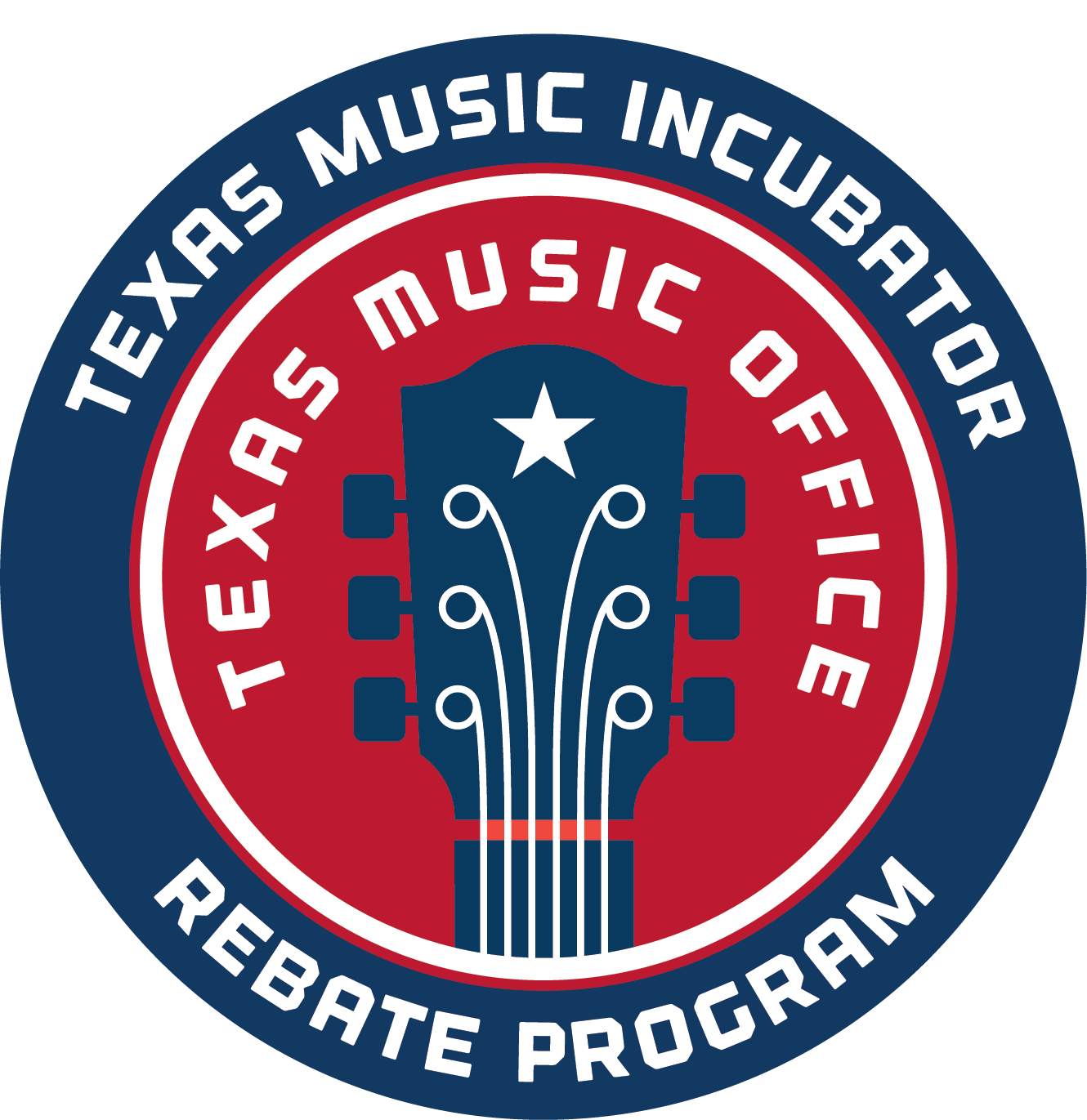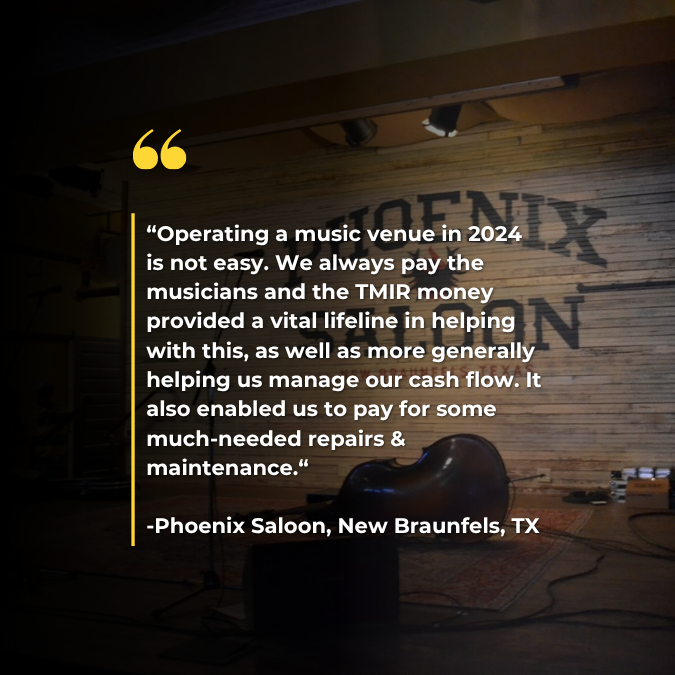The 2025 application cycle is now closed. The next application cycle will open in September 2026.
Eligibility Requirements
Except as otherwise provided in statute, to qualify for a rebate under the program, a music venue or music festival promoter must have, for at least the two years preceding the date on which the music venue or promoter submits an application;
(1) been a permittee subject to the mixed beverage gross receipts tax or a permit holder subject to the sales tax on the sale of beer or wine;
(2) if the applicant is a music venue, been a retail establishment with a dedicated audience capacity of not more than 3,000 persons;
(3) if the applicant is a music festival promoter, held a music festival in a county with a population of less than 100,000;
(4) entered into a written contract with a musical performance artist to conduct a live performance at the venue or festival, as applicable, under which the artist received as compensation a specified percentage of ticket sales for or other sales during the performance, or a guaranteed amount in advance of the performance; and
(5) met at least five of the following criteria, one of which must be (A) or (B):
(A) the marketing of live music performances through listings in printed or electronic publications;
(B) the provision of live music performances five or more nights per week;
(C) employment or contracting of the services of one or more people who are tasked with two or more of the following positions or services: (i) sound engineer; (ii) booker; (iii) promoter; (iv) stage manager; or (v) security personnel;
(D) having live performance and audience space;
(E) the provision of technical sound and lighting support, either in-house or through a contract with a vendor;
(F) having a space for the storage of audio equipment or musical instruments;
(G) the application of cover charges to one or more live music performances through ticketing or the imposition of a front door entrance fee;
(H) the maintenance of hours of operation that coincide with live music performance show times.







